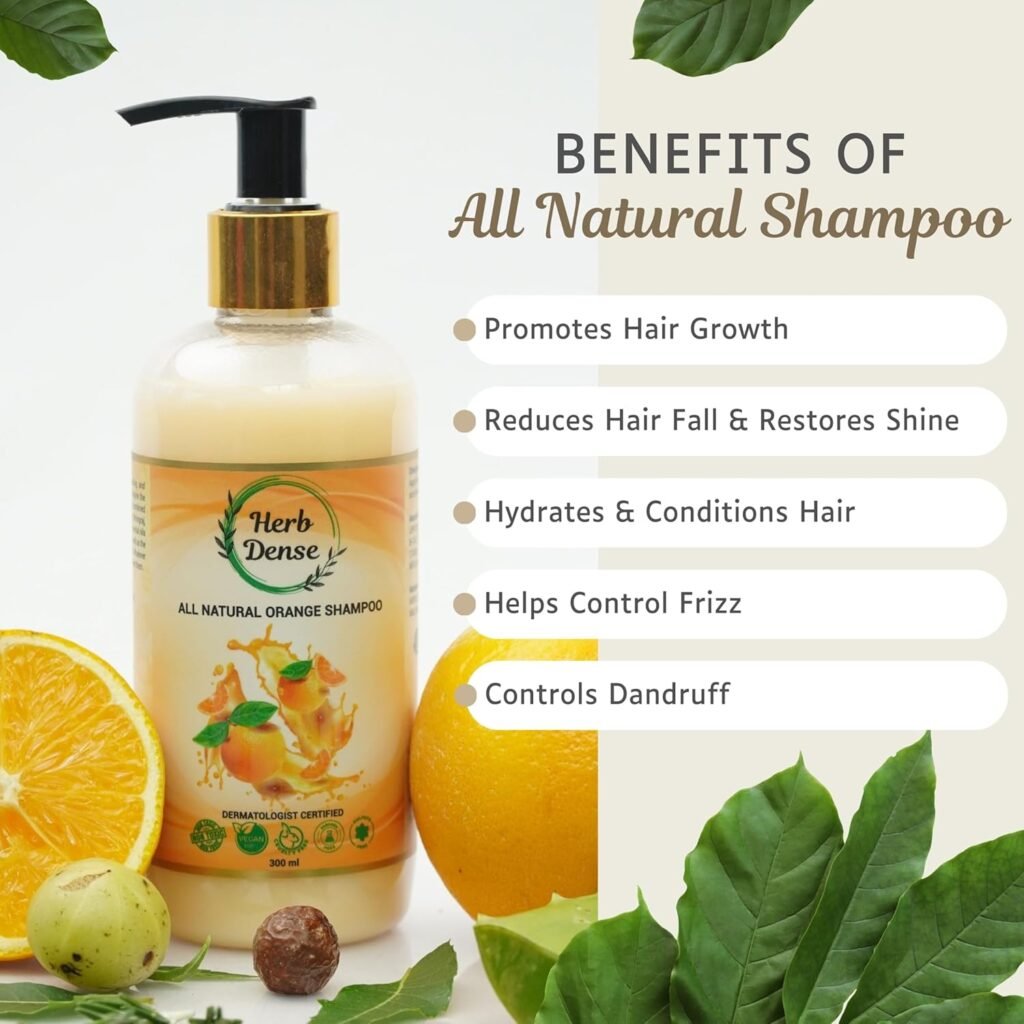Coconut oil and herbal shampoos have been valued for their hair-nurturing properties for centuries. Both ingredients, derived from natural sources, play a complementary role in enhancing hair health, promoting strength, and maintaining overall hair vitality. When used in tandem, they form a potent combination that addresses a range of hair concerns, from dryness to breakage, while also promoting a healthy scalp environment. Understanding how these two elements work together can provide insight into optimizing hair care routines for stronger, healthier hair.
The Benefits of Coconut Oil for Hair
Coconut oil is a powerhouse when it comes to hair care, primarily due to its unique composition. It is rich in medium-chain fatty acids like lauric acid, capric acid, and caprylic acid, which have moisturizing, antimicrobial, and penetrating properties. These characteristics make coconut oil highly effective for:
- Deep Conditioning: Coconut oil penetrates the hair shaft more effectively than many other oils, providing intense hydration from within. This helps reduce protein loss in hair, which is critical for maintaining strength.
- Scalp Health: The antimicrobial properties of coconut oil combat scalp infections, dandruff, and itchiness. A healthy scalp is essential for robust hair growth.
- Reduction of Split Ends and Breakage: Coconut oil’s ability to seal in moisture prevents hair from becoming brittle and prone to breakage.
- Protection Against Damage: It acts as a barrier against environmental aggressors, such as UV radiation and pollutants, which can weaken hair over time.
Regular use of coconut oil as a pre-wash treatment, leave-in conditioner, or scalp massage oil can lead to visibly stronger and shinier hair.
The Role of Herbal Shampoos
Herbal shampoos have gained popularity as a gentle yet effective alternative to chemical-laden hair products. Infused with plant-based ingredients, these shampoos nourish hair and scalp without the harsh effects of synthetic chemicals like sulfates and parabens. The specific benefits of herbal shampoos include:
- Mild Cleansing: Herbal shampoos cleanse the scalp and hair effectively without stripping natural oils. Ingredients like reetha (soapnut), shikakai, and aloe vera ensure thorough yet gentle cleaning.
- Nourishment: Infused with vitamins, antioxidants, and essential oils, herbal shampoos provide nutrients that strengthen the hair shaft and follicles. Ingredients like hibiscus, neem, and bhringraj are particularly known for their hair-strengthening properties.
- pH Balance Maintenance: Many herbal shampoos are formulated to maintain the scalp’s natural pH, preventing dryness and irritation that can weaken hair.
- Improved Hair Texture: Regular use enhances the texture of hair, making it smoother, shinier, and more manageable.
Herbal shampoos are particularly beneficial for individuals with sensitive scalps or those prone to allergies, as they contain fewer irritants compared to conventional shampoos.
Synergistic Effects of Coconut Oil and Herbal Shampoos
When coconut oil and herbal shampoos are used together, their combined benefits enhance hair strength in several ways:
- Pre-Wash Treatment: Applying coconut oil as a pre-wash treatment protects the hair shaft from the drying effects of washing. It creates a barrier that minimizes protein loss during the cleansing process, especially when using a shampoo.
- Gentle Cleansing Post-Oiling: Herbal shampoos effectively remove excess oil without harsh chemicals that can negate the benefits of coconut oil. This ensures that hair retains its natural moisture and essential nutrients.
- Enhanced Scalp Health: The antimicrobial properties of coconut oil work in tandem with the soothing and nourishing ingredients in herbal shampoos to maintain a healthy scalp environment. This reduces dandruff, inflammation, and other scalp issues that can lead to weak or thinning hair.
- Long-Term Strength and Resilience: Over time, the combination of coconut oil’s deep conditioning and the nutrient infusion from herbal shampoos helps rebuild damaged hair, strengthen follicles, and promote healthier growth. This synergy is particularly effective for individuals with dry or damaged hair.
- Improved Manageability and Appearance: Coconut oil’s smoothing properties combined with the detangling and conditioning effects of herbal shampoos make hair more manageable and less prone to breakage during styling.
Best Practices for Using Coconut Oil and Herbal Shampoos
To maximize the benefits of coconut oil and herbal shampoos, consider the following tips:
- Pre-Wash Oiling: Massage coconut oil into your scalp and hair at least 30 minutes before washing. For deeper conditioning, leave it on overnight.
- Choose the Right Herbal Shampoo: Select a shampoo that complements your hair type and addresses specific concerns, such as dryness, dandruff, or thinning hair.
- Rinse Thoroughly: After washing with herbal shampoo, ensure that no residue is left behind, as buildup can weigh hair down and affect scalp health.
- Frequency of Use: Depending on your hair type, use coconut oil 2-3 times a week and an herbal shampoo for regular washing. Adjust the frequency based on your hair’s needs.
- Supplement with Herbal Conditioners: To further enhance the benefits, pair your herbal shampoo with a herbal conditioner containing ingredients like aloe vera, argan oil, or fenugreek.
Conclusion
Coconut oil and herbal shampoos are a natural, effective duo for promoting hair strength and vitality. Coconut oil’s deep conditioning and protective properties complement the gentle cleansing and nourishing qualities of herbal shampoos, creating a holistic approach to hair care. By incorporating these elements into your hair care routine, you can achieve stronger, healthier, and more resilient hair while avoiding the pitfalls of harsh chemicals. This powerful partnership not only addresses immediate hair concerns but also lays the foundation for long-term hair health.

